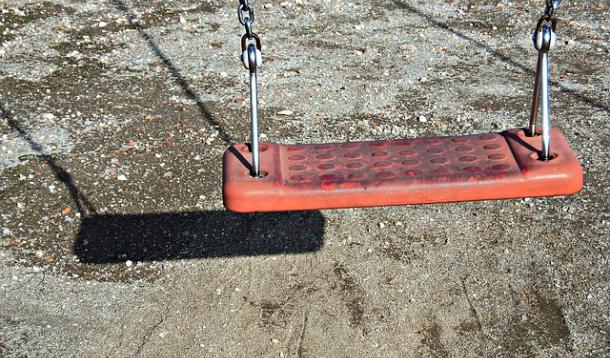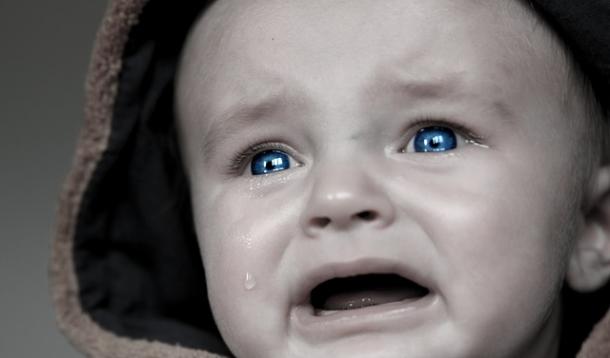
When a child dies, the shock is often great and we don’t know how to respond when such a tragedy befalls our community. Thinking through such a devastating situation is almost unimaginable and we put such thoughts out of our minds. Unfortunately, there are times when we are faced with these darkest of hours. We feel pain and wonder what the parents must be going through. And for a moment we can’t help but put ourselves in their shoes, hug our children a little tighter, and cry for their unbearable loss. We wonder how we can help. What do we do? What do we say?
My community recently had the tragic unexpected death of a toddler, a beautiful little girl whose life was cut inexplicably far too short. The parents have been left to suffer immeasurably, their closest friends and family were reeling, the community in shock. As a therapist I was involved with helping the family but through it was sought out by many in the community wanting to know what they could do.
How can you help? Here are some ways from my experiences as a counsellor and information provided by brave parents who have gone through the loss of a child and reached out and shared.
Practical Assistance
There are obvious and less obvious ways to help a family. In our community help came from workplaces, friends and all corners to meet practical the needs of meals, rides, phone calls, places to stay, flights for supportive family to come in, and help with other complicated logistics. This is a great place to start. What practical things could the family use? Think day to day, think practical, and ask the family, they will likely need something you wouldn’t expect.
Think Future Assistance
Also think a few weeks out. How can we organize and spread out the support so as not to overwhelm? Initially the event is on everyone’s mind but time will pass, people get busy, so be mindful of this and check in in three weeks, three months and on to see what practical needs might be needed at that time. Grief is a long journey.
Help Preserve Memories
One mom who lost her infant son talked about gathering memories and how important it will be to print the pictures that you might have of their child, help them back up the pictures they have, create photo albums, and write out quotes their child has said or special interests. Also, ask to see the pictures. This same mom said she was longing to share her son and to keep talking about him, so offer to sit with them and learn about the child and the background of the picture. If you are thinking about giving a support gifts consider keepsakes, lockets, plants to plant, and engraved items.
Ask About the Child and Grief Specifically
Check in with the parent directly about the grief. Are you okay? Is rhetorical as they aren’t, nor will be for some time, perhaps ever. Try “how are you managing your grief around *use child’s name* today?" Obviously you can take your cue from the parent on how open they are feeing at that time, but as I have learned through the years, bereaved parents find people avoid talking about their child that died and avoid even saying the name as they are afraid to upset them. As one parent said, “We are always thinking about our child; you won't have reminded us of something we can never forget!”, and she also added that hearing your child’s name is music to the ears of a bereaved parent, they feel comfort that the child is not forgotten by others.
Remember Important Dates
Families are often touched by people remembering occasions like a birthday, holidays and the anniversary of their child’s death, so reach out and ask. Again, they are already thinking about the loss so be there to think and remember with them.
Just Be There
Sit with them, walk with them, and help create a safe space to feel feelings and process events. It truly is the bulk of what I do as a counsellor in these situations. It is okay to say you don’t know what to say. You can listen. Sometimes this means simply sitting in silence. I find that a lot of people are uncomfortable with silence, but allow it to happen and let go. Avoiding the family because you don’t have the words can be very hurtful, so be as present as you can be. You might say the wrong thing, and it happens, and you can apologize, but avoiding the situation all together is felt harder.
Don’t Try to Fix it
You can’t:. A colleague of mine who lost her mother in a tragic car accident said that the only fixing is resurrecting, so let that go. This also means letting go of trying to cheer up or lighten up the moment. There might not be any foreseen ups, and finding them is not your job. It is better to sit quietly and patiently with them in the downs.
Be Yourself
It is okay to cry. The situation Is devastating and you are allowed your feelings. Just make sure to use the comfort in/dump out approach.
Check in
If you aren’t sure about a scenario or if something you said was wrong, ask, I can’t stress this enough. For example, if you aren’t sure if they want to be around your kids say “I am wondering if you want to come by the house but wondered how you would feel if my kids were present?” Let them tell you. They might want to be surrounded by people and children or might need a break from certain reminders; they will let you know.
There are things you can do to help a family facing loss. Think practically and supportively to figure out how you can best help.
A special thank you to the parents in our community who have lost children who were able to provide many of these ideas, to my colleagues that have helped me think through my support in many situations over the years, and the many educators who write about grief and loss and provide lifelines for parents experiencing this pain.

Lice is horrible but worms? Far worse. I remember having lice in grade seven. I was so very, very itchy that even typing the word inspires a scratch. The removal involves some checking, which I loved to receive as a child. In fact, to my mother's chagrin, my fourth grade teacher brought up her concern at a parent teaching meeting that I was constantly asking when the health unit would be coming in for a lice check. This scalp massaging, oops, checking is followed by the washing, combing x100, and lots of laundry. You can also hire it out to the lice bars and salons... pure gold. But let me tell you there is something much worse that no one can hire out and that is pinworms.
Things to know about pinworms/threadworms (spoiler alert... they are all gross, every single step):
Worms can live in the intestines for about five to six weeks and then they die, however, the females lay eggs. Where do they lay eggs? The anus and sometimes in the vagina or urethra for girls. They can lay approximately, insert dry heave, 11,000 of them. The eggs grow up in about two weeks, and then more egg laying. Cycle repeats. Awesome.
Like lice, this too is about scratching, but not an itchy head. We are talking about toddlers walking around looking like they are constantly adjusting thongs. I totally missed this, I mean kids can rummage, but on reflection I realized... “that was what was going on down there!”. Also, if you are wondering why bedwetting is back or increased, that is the worms again. Another symptom is interrupted sleep. We were completely experiencing this with our toddler and wondering why, oh why we were back to this stage. I feel bad now as I thought he was trying to mess with us. You see worms, eggs, the mucus the worms produce... all itchy. Plus all of this can make a child understandably irritable. The whole thing is, and this is a huge understatement, irritating.
You aren't dragging two spare chopsticks through a head of hair for these little fellas, try dissecting the feces. Another way to find them is an all out recognizance mission. It requires a flashlight, some prying of the butt cheeks and the dark of night. I can imagine children awakening to this are keeping this little gem from their childhood buried somewhere deep in their little psyches, but it is a common way you can find the tiny worms who seek the light when shined down upon. Another CSI move for this? Take some clear tape to the anus first thing in the morning before bathing. Parenting is so glamorous, isn't it?
We are eating these parasites and breathing them in! Yes, yuck! This can come from utensils, bedding, clothes, toothbrushes, basically, if it can be touched it can be transferred! And if that hand then comes to the person's mouth... well you get the idea. Plus, don't shake the bedding - the worms will just shake onto things you aren't thinking to throw in the laundry.
No one is immune! This spreads to adults too and 1/3 of children in Canada will get it at some point. So if your child has it, you probably do too. I am not sure we talk about it much in North America, as it is sort of a Lord Voldemort "dare not speak it's name lest we get it" situation, but many of my friends from South Africa know it is commonplace and just add a dose of worm medication to their yearly health precautions.
Worms certainly have grit, I can give them that -they can live for two weeks outside the body. Two weeks! Meaning while you are doing never ending laundry, vacuuming, disinfectant spraying, basically the overall cleaning of (or setting fire to) the entire house, they might still be hatching. Obviously the first thing you need to do is get treatment. The treatment isn't too bad, just some over the counter oral medication, and guess what... sometimes you might need to do another dose. And guess what has happened to all that clean laundry since the last dose? Plus the medication will only kill the live worms and not the eggs. Oh, it messes with you.
Every morning all bedding and towels washed, no sharing of towels, make sure you are hand washing always, and try to keep all of this especially vigorous for the next month and a half.
So that is the disgusting details of worms. My good friend had it at their house and a couple members of her family had to have multiple treatments. She looked exhausted, forlorn, and grossed out! It isn't pretty, but it happens, so break the silence. Have a laugh and be ready for the most disgusting (that I've certainly experienced to date) of this, one of the most easily spread and common childhood infections.